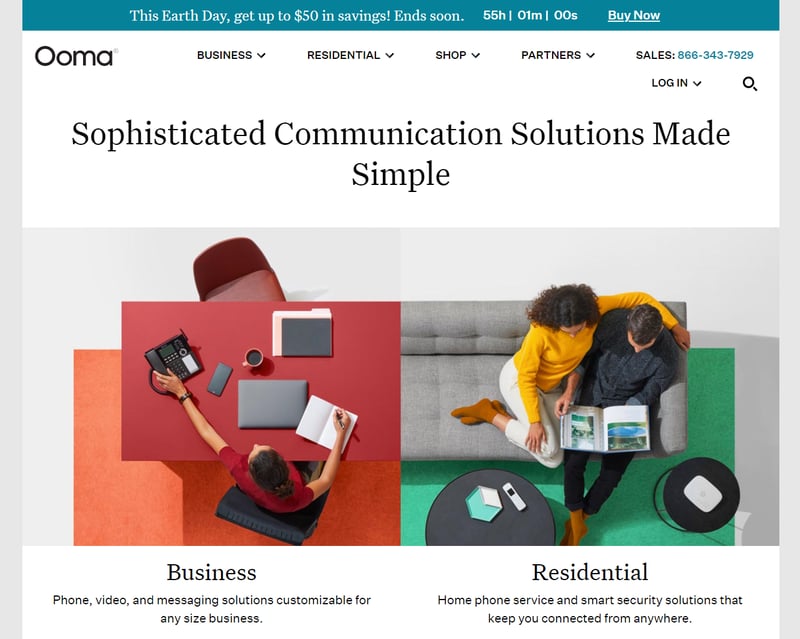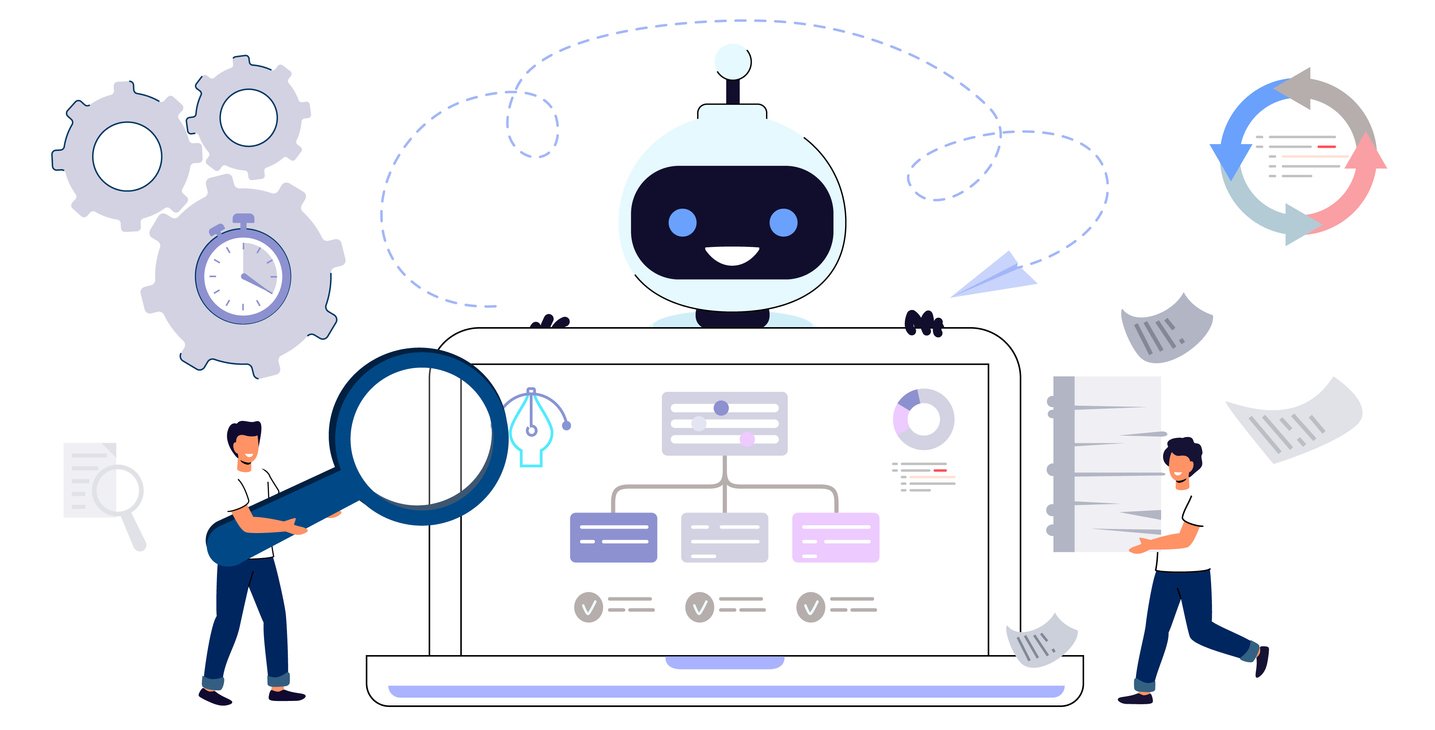
What is a VoIP Caller: Your Complete Guide on Corporate VoIP System
 Updated on
Updated on
 By Bradley Kovacs
By Bradley Kovacs
Bradley Kovacs
Bradley has been passionate about technology since childhood, starting with Microsoft Flight Simulator at age six. In college, he automated his data e...
learn more
Bradley Kovacs
Bradley has been passionate about technology since childhood, starting with Microsoft Flight Simulator at age six. In college, he automated his data e...
Table of Contents
Table of Contents
Your phone rings. You stare down at the screen's readout and think: "This VoIP caller keeps calling me!"
So, who is VoIP caller? Or more accurately, what is a VoIP caller?
Well, the TL;DR version is that a VoIP caller is someone calling from a voice-over-internet-protocol system, which just means the call's routed through an internet connection instead of cell towers or wires. But if we're digging into the meat of the situation, a VoIP system is a digital phone system your sales team should be using. Right now.
VoIP business lines jumped from 6.2 million to 41.6 million between 2010 and 2018. That's a growth increase of 571%.
A VoIP system will increase productivity, reduce costs, boost flexibility, and even make the call for you (if you're using a power dialer, that is)!
Ready to up your phone game, boost sales, and improve efficiency?
We thought so. Let's define VoIP caller.
What is a VoIP Caller?
The quick answer is that a VoIP caller is somebody calling who's using a voice over internet protocol system instead of a traditional phone line.
What is VoIP? It's a digital, internet-based phone system that's kicking some serious butt. It makes a connection using the internet rather than your average wires and poles set-up and allows for more than just talking.
With VoIP you can:
- Text and send instant messages
- Record calls
- Make free international calls
- Dial with a simple click to call functionality
- Send voicemail-to-email
What Does VoIP Caller Mean on Caller ID?
Simply put, a VoIP caller means the person or business trying to make contact is using a VoIP phone. It's really no different than any other call.
We hear a lot of folks ask "What is a VoIP caller on my phone, and is it malicious?".
There's no reason to outright mistrust VoIP callers. Scams can take place via:
- VoIP calls
- Cellphone calls
- Landline calls
It's just like any other phone system, but people are a little uncertain because it's new technology. This happens to anything new.
People in the 1920s thought jazz caused divorce.
How wicked.
Benefits of VoIP Caller for a Sales Team
The benefits of a VoIP softphone for a sales team are nigh uncountable.
You know it's serious business when we talk all fancy.
But I think you'll find that VoIP systems have so much to offer even far after implementing it. You'll keep finding new benefits.
The pros are far more numerous than the six points we list here…but let us show you anyway, alright?
1. Automation and Efficiency
Using a VoIP system allows teams to automate outbound calls, voicemails, follow-up reminders, and even pre-recorded messages. Sales reps no longer have to waste precious time dialing numbers manually or fumbling through spreadsheets.
According to Zapier, automation can save up to 16 hours per week per rep, freeing them up to close more deals.
Plus, with VoIP integrations into CRM dialer platforms, customer information pops up instantly during a call, reducing awkward moments and boosting first-call resolution rates.
2. Local Presence Dialing
Ever wonder why you're more likely to answer a local number than a random out-of-state area code? That's no accident. With VoIP, your sales team can set their caller ID to match the local area code of the person they're calling—this is called local presence dialing. It increases answer rates by up to 400%, according to Revenue.io.
When someone sees a local number, they're naturally more curious. It's psychology... backed by a little bit of tech magic.
3. Sms/Email Integration
Today's sales strategy isn't just about calling—it's about being everywhere your customer is. VoIP systems often integrate with SMS and email platforms, allowing reps to send a quick text or follow-up email straight from the call dashboard.
Instead of scrambling to send a "nice to meet you" note later, reps can instantly fire off a message while the interaction is still fresh.
4. Scalability
Every business owner wants to scale their company and grow, so it goes without figure that every business owner wants easy scalability and growth potential.
What is a VoIP caller system when it comes to company growth?
Think of a phone system that has no physical phone lines, no expensive hardware, and no additional setup. Are you planning on hiring five new agents? Or are you just getting a few temps for a big project?
Either way, you're going to be able to quickly add new lines to your VoIP plan on a whim without all the prep and hassle.
You really don't want complicated phone lines to be the thing holding back your business's growth.
5. Cost Savings
Can Voip systems save you money? You bet your boots they can.
Start-ups can see a cost reduction of 90% just by implementing VoIP systems alone.
Here's a quick summary of the potential savings you can experience by adopting VoIP phones:
|
Direct Cost Savings |
Indirect Cost Savings |
|
PBX Costs |
Allows flexible remote work
|
|
Copper Wiring Charges |
Extra features included |
|
Calling Costs |
Auto-attendant is basically an included secretary |
|
Recurring Expenses:
|
Easy call recording and coaching improve employee work performance and increase skills |
It isn't a big shocker that the average savings when an organization adopts VoIP is 30 - 50%.
And on top of that, VoIP costs are expected to decrease by 5% every year. So it's only getting cheaper.
6. Performance Analytics
How many calls does it take to close a deal? Which script works best? How long are the average calls? Thanks to VoIP, sales managers don't have to guess. Real-time analytics provide performance metrics like call volume, answer rates, talk time, and conversions.
Better yet, teams can A/B test different approaches and optimize strategies based on hard data—not hunches.
How to Choose a VoIP System

Now, now, don't rush off quite yet.
"But look at all the benefits…" you say, starry-eyed.
We understand. But not all VoIP systems are built the same, and we want you to get the best possible program for your business.
So here are the top considerations when choosing a VoIP system.
1. Define Your Team's Needs
Before you get dazzled by shiny features or rock-bottom prices, step back and ask: what does my team actually need?
If you're a lean team focused on outbound sales, you might prioritize local presence dialing and automated workflows. If you're a support-heavy team, seamless VoIP texting and CRM integration might top the list.
Remember, understanding what a VoIP caller and its benefits are just the start—you need a system that supports how your specific team operates every day.
Questions to ask yourself:
- How many users need VoIP access?
- Are you mainly making outbound calls, receiving inbound calls, or both?
- Do you need global reach or local focus?
- How important are SMS and email integrations?
- What's your monthly budget?
2. Evaluate Features That Matter
Alright, now that you know your needs, let's look at the features you should actually care about, because having "AI-powered unicorn emojis" is cool and all, but it won't close deals.
Here's a breakdown of must-have VoIP features:
|
Feature |
Why It Matters |
|
Set up automated sequences to nurture leads over time without manual follow-up. |
|
|
Present a local number to increase your pick-up rates. |
|
|
VoIP Texting |
Send quick SMS updates, appointment reminders, or marketing messages easily. |
|
Instantly log call notes, schedule follow-ups, and access customer histories during live calls. |
|
|
Third-Party Integrations |
Connect with tools like Slack, HubSpot, or Salesforce to streamline workflows and reduce context switching. |
Choosing a provider that nails these features ensures you're getting the most out of every call, text, and follow-up.
3. Prioritize Support and Onboarding
Knowing what does VoIP caller mean is great—but what happens when your phones go down during a major campaign? You'll need support you can actually reach—and fast.
Look for VoIP providers that offer:
- 24/7 live chat or phone support
- Comprehensive onboarding and training materials
- Dedicated account managers for scaling companies
- A user-friendly help center with real guides (not just vague FAQ pages)
A smooth onboarding experience can speed up adoption, which means your team will be calling, closing, and celebrating faster.
4. Think about Pricing and Flexibility
Finally, the money talk. VoIP can save businesses up to 60% on phone bills compared to traditional phone systems, but only if you choose the right pricing model.
Look at:
- Per-user pricing: Good for predictable budgeting.
- Pay-as-you-go: Ideal if your call volume varies month-to-month.
- Tiered feature sets: Make sure you're not paying for features you'll never use.
- Contract terms: Avoid long lock-in periods if you're unsure of future growth.
Flexibility is crucial. As your business evolves, your VoIP plan should be able to adapt. Choosing a flexible system ensures you can scale your global outreach and stay agile in a changing market.
5 Best VoIP Systems for Your Sales Team
What is a VoIP caller? Check. What are the benefits and considerations? Check. How to choose one? Check.
Now that you've really nailed down those points, we bet you're looking for the best available VoIP system on the market. Well, we've got news for you.
That's right, even after all the help we've offered we still have more to give.
Let's list off a few top-class VoIP systems to get you started.
1. Ringy

We really can't list off the best VoIP phones and not mention Ringy.
Ringy's simple click-to-call VoIP softphone allows agents to call, text, and email all from their internet connection alone. Sales coaching, conferencing, drip campaigns, and more are made easy.
It includes progressive dialers, local ID, 24/7 support, a mobile app, detailed analytics, and integrations with Google, Facebook, and Zapier. Plus, it has "pipeline dialing" especially for sales teams, where you can sort your leads into "buckets" based on certain criteria, like if they've received a quote or not.
Let's compare our darling Ringy to a couple of plain VoIP phones and see the results:
|
Feature |
Ringy |
Ringcentral |
Grasshopper |
|
VoIP softphone |
Yes |
Yes |
Yes |
|
Lead management |
Yes |
No |
No |
|
Task automation |
Yes |
No |
No |
|
Drip campaigns |
Yes |
No |
No |
|
Performance insights and analytics |
Yes |
Yes |
No |
|
Pipeline management |
Yes |
No |
No |
|
Progress tracking |
Yes |
No |
No |
|
Video conference |
Yes |
Yes |
No |
See? It really is true that when you buy a CRM with included VoIP, you're getting the most bang for your buck.
Plus, it only costs $119/month, and we haven't even gone into the CRM capabilities.
2. Nextiva

Nextiva is a VoIP system, team collaboration tool, and customer service software that aims to simplify your business communications just a little bit more.
With features like SMS, analytics, call recording, and conference calls, it certainly stands out as a great VoIP contender.
Its SMS and messaging are its biggest weaknesses, having a short character limit and generally just being a bit lackluster.
Its most popular package is $20/user/month (paid annually), which isn't too shabby for this nice little system.
3. Grasshopper

For entrepreneurs, side hustles, and brand-new companies, Grasshopper is a VoIP provider built for small businesses. It includes custom greetings, call handling, and 24/7 support at a very reasonable price.
Plus, it features a mobile app, automated text-back for missed calls, easy call routing, and an auto-attendant, which is pretty impressive for a smaller system.
Its lack of CRM integration, other third-party integration, and video conferencing leave it somewhat disappointing. Although it isn't too much of a problem if you're just starting out.
Its plans range from $14 - $55/month (billed annually), with varying numbers of phone numbers and extensions per plan.
4. Ooma

Ooma is a VoIP system that's aimed at small businesses, enterprises, and even residential home use. It promises easy setup, great support, and quality customer service.
Video conferencing, mobile app, voicemail, call forwarding, call recording, auto-attendant, and more are all great qualities for a VoIP phone to sport. However, video conferencing and call recording are only available in the Pro package.
Also, it doesn't have Wi-Fi right off the bat. You'll need a separate Wi-Fi adapter at an additional cost.
The Pro tier is $29.95/user/month.
5. Ring Central

Ring Central is a reliable VoIP phone system aiming to bring robust features to small and mid-size businesses that were previously only available to large companies.
It features analytics, business SMS, a mobile app, and integrations with Google, Microsoft, Box, and Okta. So it's a pretty solid program.
Its biggest issue is its customer service and support. Users complain about being on hold for way too long, being transferred continually between departments, and even being hung up on. Ouch.
Its most popular pricing package is $25/user/month (billed annually).
Common Mistakes to Avoid When Using a VoIP System
Understanding what a VoIP caller is and choosing the right system is half the battle. But even after you sign the dotted line, there are a few potholes that can wreck your journey if you're not careful.
Here are the top mistakes businesses make—and how you can sidestep them like a pro.
Choosing Price Over Features
We get it: nobody wants to overpay. But if you choose your VoIP provider based solely on the cheapest plan, you'll quickly find yourself asking, "what did i get myself into?" when your customer support lines crash... mid-launch.
Sure, VoIP is generally cheaper than traditional landlines, but that doesn't mean every budget option is a smart one. The right features, like local presence dialing, CRM integrations, VoIP texting, and call analytics, are what actually drive revenue. Skimp on these, and you might save a few dollars today, but lose thousands tomorrow.
Pro Tip: Always match your VoIP system to your growth goals, not just your current budget.
Ignoring Onboarding/Training
Even if you pick the Ferrari of VoIP systems, it won't get far if nobody knows how to drive it. Poor onboarding is a silent killer.
So, don't assume your team will automatically "figure it out." Schedule onboarding sessions, use vendor resources, and make sure your reps are comfortable with everything—from local dialing to drip campaigns.
Because nothing kills morale faster than fumbling through a customer call because someone didn't know how to transfer.
Failing to Configure Spam Prevention
Ever wondered why a VoIP caller keeps calling me, and it feels a little... off? VoIP numbers are sometimes used for robocalls or spam, and you don't want your business mistaken for one of those calls.
Spam prevention tools, like call authentication (STIR/SHAKEN compliance) and proper caller ID registration, are essential. Without them, your legit sales calls could get flagged as spam by carriers—or worse, ignored by prospects altogether.
In fact, according to Hiya's State of the Call Report, over 75% of people won't answer a call from an unknown or suspicious number.
If you don't configure spam prevention, your entire VoIP investment could go straight to voicemail.
Not Integrating With CRM
When your VoIP is synced to your CRM, the following happens:
- Customer data pops up during live calls.
- Call logs and notes are automatically saved.
- Follow-ups are scheduled with just a click.
Companies that tightly integrate communication channels with their CRM see over 50% improvement in customer satisfaction scores.
Conclusion

We think we've sufficiently answered the "What is a VoIP caller?" question today. A VoIP caller is nothing more complicated than a person or company calling from an internet-based phone system.
And what company wouldn't want to be calling from a VoIP softphone? They provide convenient automation, accessibility, portability, smooth program integration, and allow easy scalability.
And the ROI far outweighs the monthly subscription cost.
If you want to take a dive into VoIP yourself, request a demo with Ringy so you can start enjoying a VoIP system as well as a top-notch CRM.

Skyrocket your sales with the CRM that does it all.
Calling? Check. SMS? Check. Automation and AI? Check. Effortlessly keep in touch with your customers and boost your revenue without limits.

Take your sales to new heights with Ringy.
Sales in a slump? Ringy gives you the tools and flexibility you need to capture leads, engage with them, and turn them into customers.
Subscribe to Our Blog
Enter your email to get the latest updates sent straight to your inbox!
Categories
Related Articles

































































































